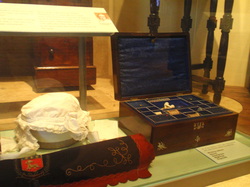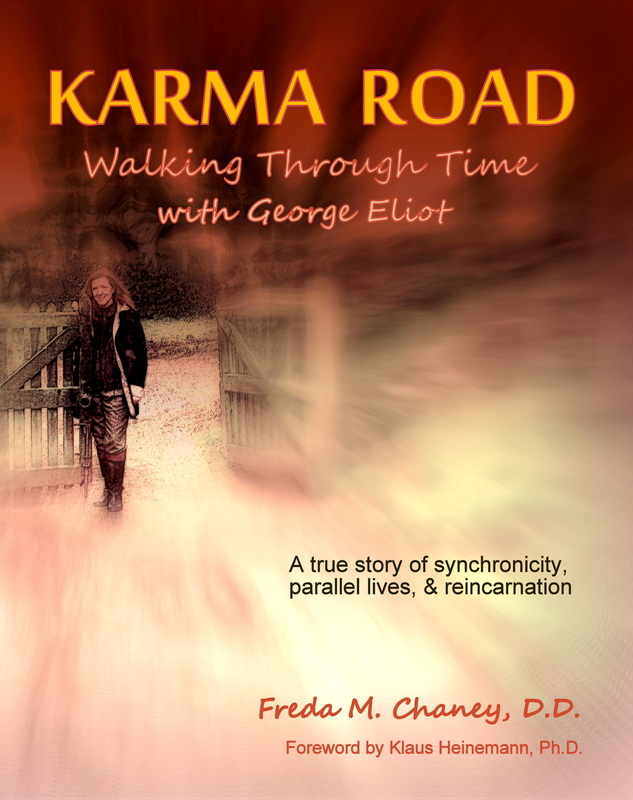Did you know that three of the most revered philosophers in human history all believed in reincarnation? If you remove religion from the equation, making it a non-issue, we see that most can accept that Socrates, Plato, and Aristotle must have had some clues. As a matter of fact, most relgions teach reincarnation too, and Christianity was among them until the Bible was rewritten during the convention of the Council of Nicea in 325 AD. Many omissions were made to early biblical references to reincarnation.
 George Eliot's sewing kit. George Eliot's sewing kit. "Many George Eliot fans ask me if the author was a feminist. She certainly set the tone along with others of her era. She defied restrictions that would have bound more socially acceptable women of the nineteenth century. She chose, instead, the company of men with whom she could express her intellectual ideas. The more she desired the company of men with whom to share new concepts, the more she removed herself from the company of her father, her brother, and close friends of the family. George Eliot fought to be accepted by men and even used a man's name to get her work published. Eventually, likeminded women who sought social reform, began to follow Eliot's work, and soon she was writing to royalty in her own country and penning letters to her devoted readers in America. She wrote to Harriet Beecher Stowe about equality, freedom, and social reform in relation to her novels. Eliot met Ralph Waldo Emerson who was to have a profound affect on her thinking, so it is only natural that she would communicate openly with other Transcendentalists who were active in social reform in America. It is said that Emily Dickinson admired George Eliot. On the wall in Emily's room, a portrait of George Eliot is hung between the two windows that connected her with the world below. Quite symbolic! I would not go so far as to say that Eliot was a feminist because she was happy to be at home with her soulmate, George Lewes, playing the part of the devoted woman in the relationship. But George Eliot was certainly a precursor to modern feminism, thumbing her nose at society by keeping only those traditional values which suited her. She stands out in her ability to relate with the common people of her time even though she herself was quite uncommon. Her heroines were strong in a quiet sort of way, and usually very feminine. Under the surface of each strong character was a reflection of Eliot's own. She lived out her desire for a "reformed" life through her books, and by doing so, brought her century into the industrial revolution with a proper dose of social reform softened by her gentility." ~ Freda M. Chaney, D.D. |
|
 RSS Feed
RSS Feed
